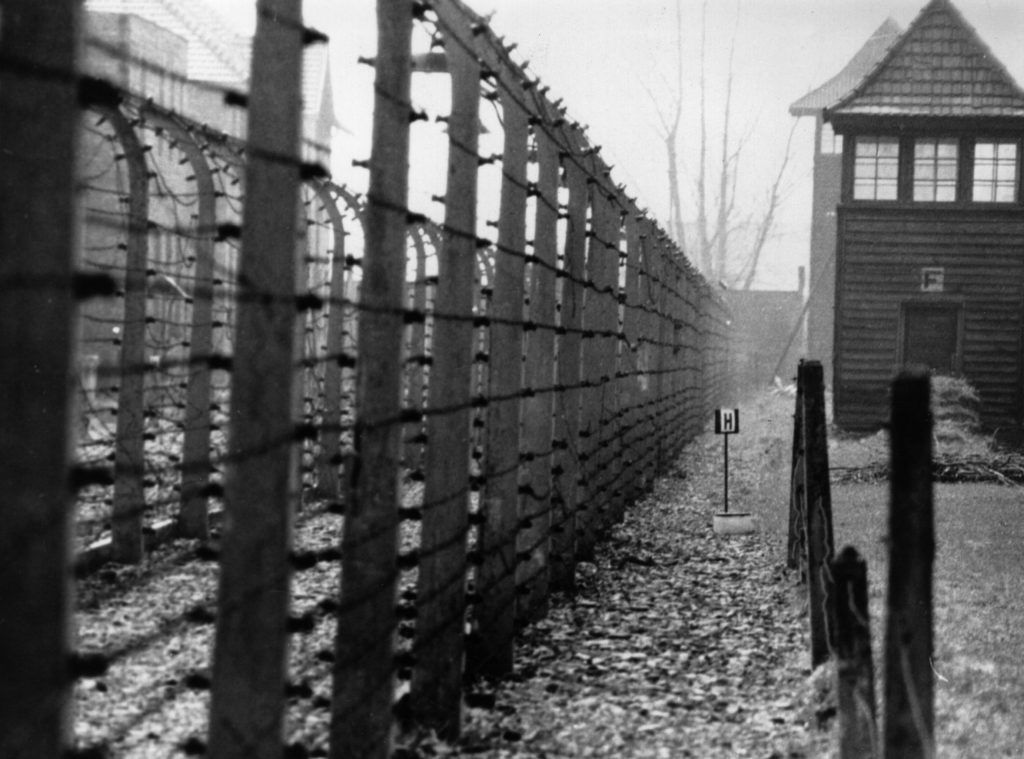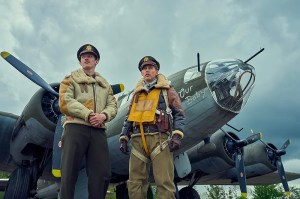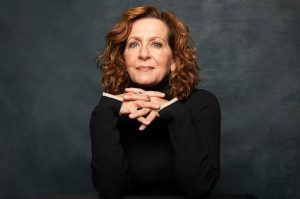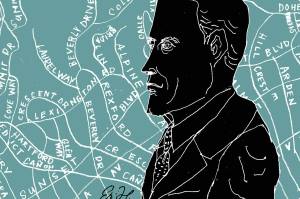Pretzsch is a normal small town on the River Elbe, 35 miles north east of Leipzig, with little or nothing to suggest its dark past. Eighty years ago, in the spring of 1941, it became a mustering point for a cadre of men who would perform ‘special tasks’ during the forthcoming Nazi invasion of the Soviet Union. Over the spring and early summer months, around 3,000 men arrived in Pretzsch. Quartered in SS accommodation, the men eventually learnt they would be part of four Einsatzgruppen — special task forces — who were to move behind the German front line. Their task was framed as maintaining security and eliminating resistance. By the time they entered Soviet territory on June 22, 1941, they understood what this meant in practice: mass murder, with the Jews of Eastern Europe a primary target.
The actions of the Einsatzgruppen were an integral part of the Holocaust. By 1944, around two million people had been murdered — commonly at close quarters through mass shooting. Critically, this swathe of killing was not hidden away; rather, it was conducted ‘in broad daylight’. Its ‘success’ depended upon the collaboration, acquiescence, and logistical support of thousands — from local populations to sections of the German military, and so-called ‘ordinary men’. This, therefore, is history that raises fundamental questions about how man-made atrocities are possible and who bears responsibility for them. These are elemental matters of the human condition.
‘The past is a foreign country’, in L.P. Hartley’s phrase, ‘they do things differently there’. Today, it is easy to look back at what was taking shape in Pretzsch and see it as horrific and lamentable but fundamentally alien to who we are now. There are, of course, always substantive differences between the past and the present; the world of 2021 is certainly not that of Europe in 1941.
However, while we are not living against a backdrop of war and European genocide, we do face significant threats to the lives we have become accustomed to since 1945. In several nations, the last decade has seen extremism on the march and the sinews of mainstream liberal democracy become increasingly frayed. Social, political and economic instability has engendered fear and uncertainties: emotions that have been fanned by populist politicians and seized upon by those at the extremities of the political spectrum. We are all acutely aware of living in an age of so-called post-truth and alternative facts but we have yet to formulate a consensus for how to combat those who double-down on the fictitious and the fabricated. And all this has, of course, been magnified further by the coronavirus pandemic — which has brought its own acute challenges but also reanimated age-old practices like scapegoating and conspiracy theories.
Perhaps most strikingly we see the rise of the QAnon conspiracy theory around the world, a phenomenon that, at least in part, was a driving force behind the shocking sacking of the Capitol at the start of this year. Even a cursory glance through the anecdotes and lies that make up the beliefs of this ‘movement’ reveals their similarities to the anti-Semitic tropes seen throughout Europe before World War Two.
Worryingly, this climate of lies and fake news has manifested itself in our classrooms. In my own line of work, the last couple of years has brought growing anecdotal evidence of the Wild West nature of social media and signs of extremism seeping through the school gates in the UK. Ongoing analysis of new empirical research we have conducted at the UCL Centre for Holocaust Education is suggesting that over a quarter of teachers ‘always’ or ‘often’ find students ‘believing information they find on the internet regardless of the source or accuracy of the information’, with nearly three quarters finding this at least ‘occasionally’. Additionally, in this study, some teachers reported the presence of anti-Semitic tropes and stereotypes circulating in their school settings, and some had experienced students questioning how we know about the Holocaust and the significance accorded to it.
These empirical findings echo what schools are saying is the value of Holocaust education. Headteachers have told us they increasingly need to combat myths and misconceptions, push back against extremist sympathies, and inculcate critical mindsets through teaching and learning about the Holocaust. Significantly, we have seen through our close work with schools that developing excellent teaching and learning about the Holocaust does indeed have transformative effects and can help schools to confront modern day issues.
When the future appears uncertain, we often look back to an idealized past. History, however, is not a repository of lessons designed to make us feel better. What it can be is a source of insights, of perspectives — the knowledge and understanding of which can be used to bring a critical (and honest) light on the present. Teaching and learning about a time when Europe descended into continental genocide is not easy or straightforward. It is painful knowledge. But when teachers and students are armed with this knowledge in thought-provoking and sensitive ways, they can become exponentially alive to the dangers of our contemporary world. They are aware, for example, that economic turmoil frequently fuels social fragmentation and extremism — a salutary warning in 2021.
Looking towards Pretzsch today, the uninformed observer will find no trace of what took place there 80 years ago. But then we don’t need to rely on physical remnants and reminders to confront the horrors that the men who gathered there would go on to unleash. Education can be far more enduring and far-reaching; if, that is, it is married with a will to face our darker selves — both in the past and in the present.
This article was originally published on The Spectator’s UK website.


















